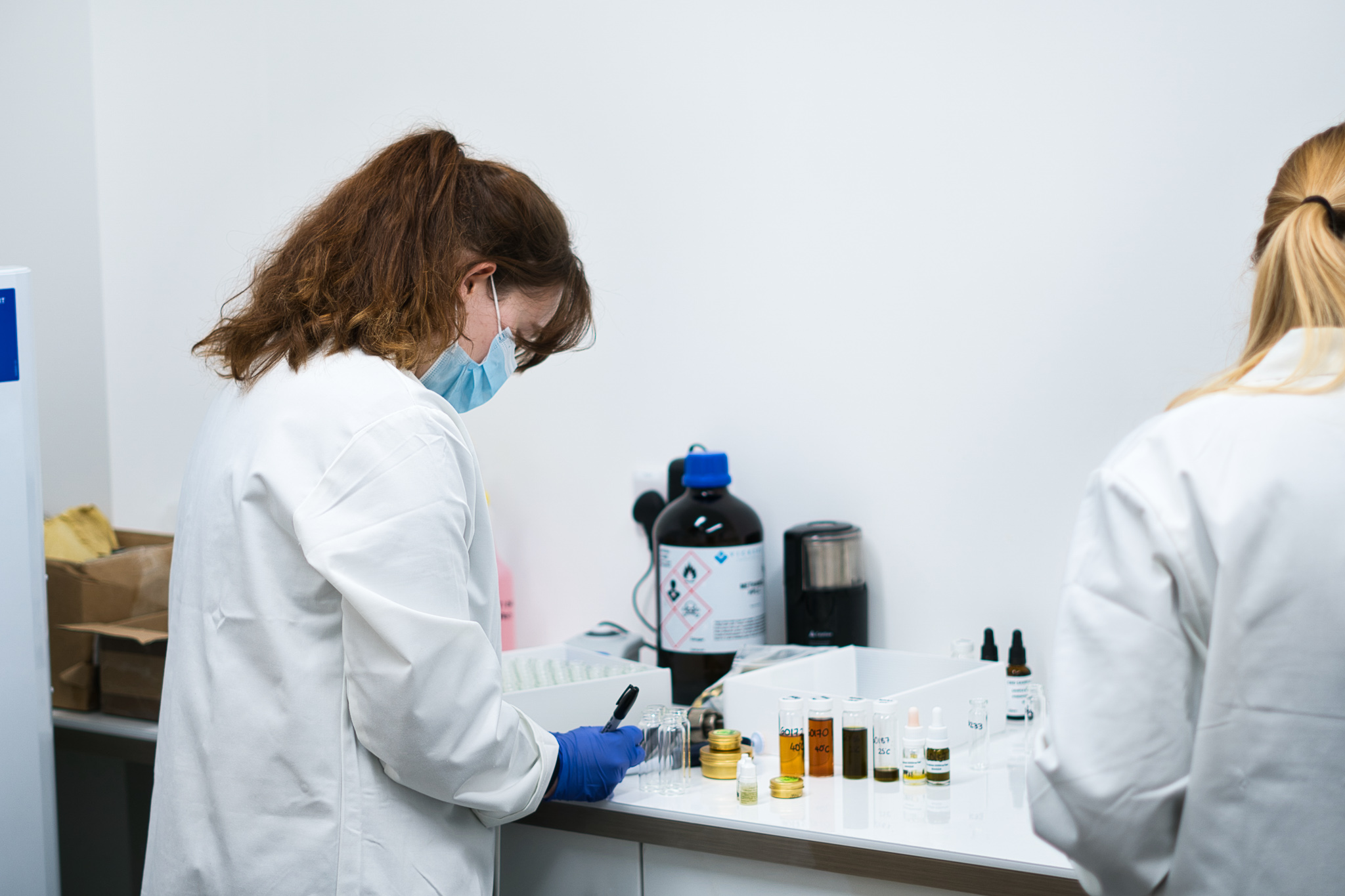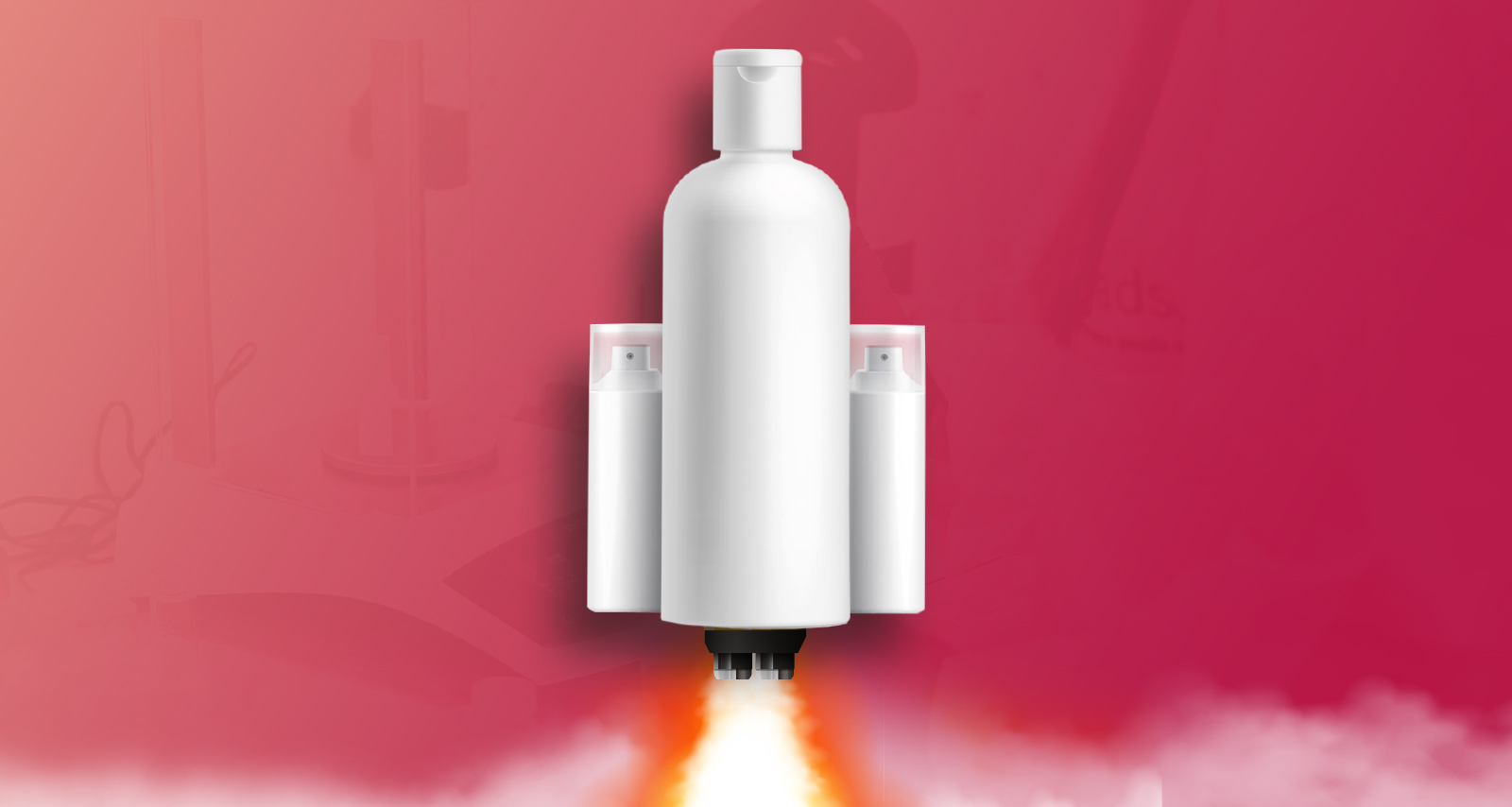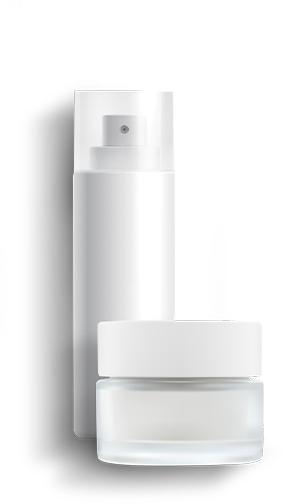Lab scale pilot production holds a pivotal role in the cosmetics industry, especially during the product development phase. Here are several benefits associated with this process:
Consumer Satisfaction:
It helps in formulating products that are appealing to consumers. Attributes like texture, fragrance, and appearance significantly influence a customer’s decision to repurchase a product.
01. Risk Mitigation
Product Safety: Conducting lab-scale tests helps
in identifying potential safety issues before large-scale production, preventing recalls and associated reputation damage. Cost-Efficiency: Minimizes the risk of financial losses by identifying issues at a stage where fewer resources have been invested compared to full-scale production. Formulation Stability: Allows for the early identification of formulation instability, enabling adjustments before mass production.
02. Product Optimisation
Formulation Fine-Tuning: Offers the opportunity to adjust and fine-tune formulations based on testing results and feedback, ensuring an optimized final product. Sensory Optimization: Enables manufacturers to optimize the sensory attributes (e.g., texture, fragrance) of the product to meet consumer preferences. Process Optimization: Helps in optimizing the manufacturing process for better scalability and consistency in the final product.
03. Regulatory Compliance
Safety Compliance: Helps in ensuring compliance with safety regulations by allowing for rigorous testing of ingredients and formulations. Documentation and Reporting: Facilitates detailed documentation of product development and testing, which may be required for regulatory submissions. Proof of Efficacy: Provides a platform for generating data to substantiate product claims, which can be essential for regulatory approvals and marketing.
04. Research & Development
Innovation: Facilitates innovation by providing a platform for testing new ingredients and formulations. Market Research Integration: Allows for the integration of market research into the product development process, ensuring products are aligned with consumer needs and preferences. Intellectual Property: Can aid in the development of unique formulations, potentially leading to new intellectual property.
05. Quality Control
Consistency: Enables the development of methods and protocols to ensure product consistency during mass production. Stability Testing: Allows for comprehensive stability testing to determine product shelf-life and storage conditions. Microbiological Testing: Facilitates microbiological testing to ensure the product is free from harmful micro-organisms.
06. Cost-Effectiveness
Resource Management: Assists in the efficient management of resources by identifying the exact requirements for large-scale production. Waste Reduction: Helps in reducing waste by identifying optimal formulations and processes before scaling up to commercial production. Budget Management: Enables more accurate budget management by providing a clearer picture of the costs involved in mass production.
07. Market Readiness
Consumer Trials: Allows for small-scale consumer trials to gather feedback and make necessary adjustments before a full-scale launch. Market Adaptation: Enables manufacturers to adapt products based on market trends and consumer preferences identified during pilot testing. Strategic Launch: Facilitates a more strategic product launch, backed by data and insights gathered during the lab-scale pilot phase.
Lab-scale pilot production serves as a critical step in ensuring the successful development and launch of a cosmetic product, helping to mitigate risks, optimize products, and comply with regulatory requirements while facilitating innovation and cost-effectiveness.
Take the next steps
If you would like to know more about the services ADSL provides or speak to a member of our Formulation and Development department please call +44 (0) 1803 520 048 or book a free video consultation with us using the Get Started link.




